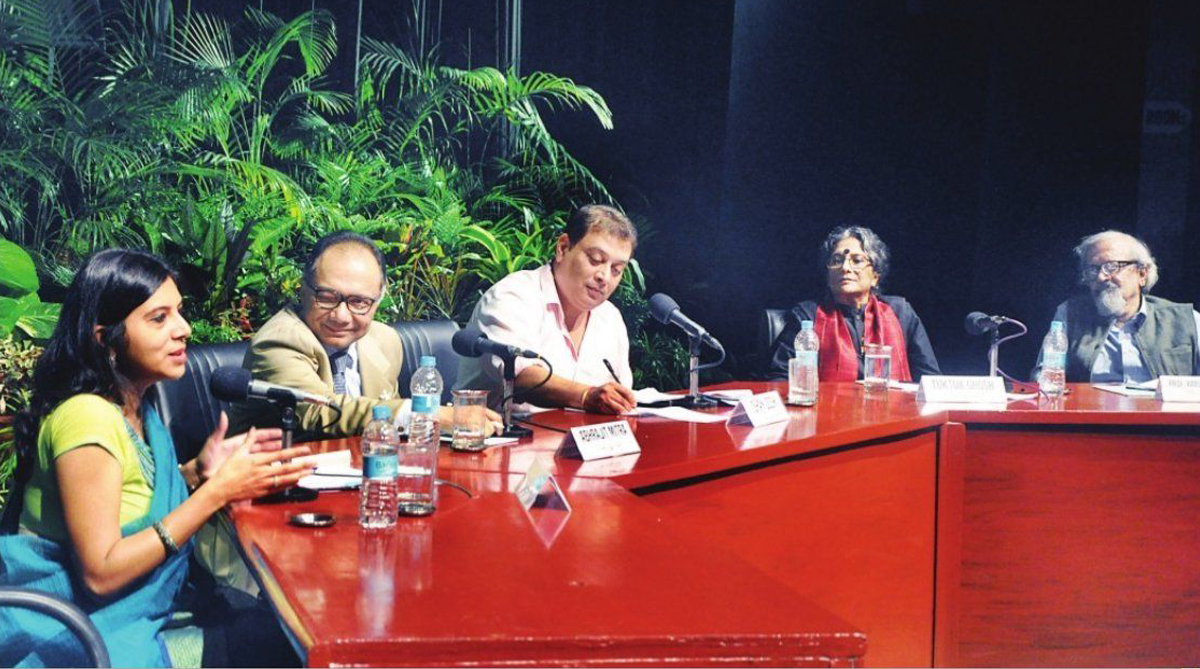Is there any remedy in parliamentary democracy, if a despot is elected to rule for a period of five years? Democracy doesn’t prescribe revolt against such a despot, but a replacement can be found at the next referendum.
This was how some of the eminent panellists responded on Sunday to the topic “Surely, Democracy Isn’t Only About Dissent ” at the panel discussion that followed The Statesman Awards for Rural Reporting and The Cushrow Irani Prize for Environmental Reporting on Sunday.
Advertisement
While some of the speakers felt it is not street dissent alone which makes democracy, but it should be loud enough to fill television screens and newspapers, others raised questions about whether dissent is only to be voiced and whether it precludes violence.
In his prefatory remarks, editor and managing director of The Statesman, Ravindra Kumar, said that though saying ‘no’ is the cornerstone of democracy, often dissent, which is voiced, is not what it ought to be.
READ | The Statesman Awards: 5 journalists honoured for covering rural, environmental issues
There are nuances implicit in the topic of discussion and it is time a line is drawn between dissent and disruption, he pointed out.
Dissent in democracy is all about debates in the Assembly or Parliament and not taking up arms, senior advocate, Calcutta High Court, Abhrajit Mitra said. The weapon of dissent is not arms but votes, he said.
And in the event of electing a person who is not voicing the grievances of the people, the rule of law and judiciary is always there to bring down tyranny, Mr Mitra said. Dissent will serve its purpose in the democratic scheme of things if it is channelised into a platform of elected representatives, he felt.
Dissent is indispensable for democracy as the former keeps the latter alive and kicking, Supreme Court advocate Madhavi Divan, said. Dissent is never an end in itself, she said.
But dissent appears to be “manufactured” and “moulded” with a surfeit of information owing to its expeditious receipt and transmission thanks to modern technology, Ms Divan said. In the bid to voice dissent, there seems to be a jostling for space with eight to 10 persons trying to outshout each other on a television programme, she said.
But then dissent is not about decibels, Ms Divan said. The Opposition has to be more responsible as dissent is only means to an end, she felt.
A “super Emergency is not on as Mamatadi said and dissent is guaranteed in the constitution,” Ms Tuktuk Ghosh, former IAS officer said. The state will respond if the rule of law, which it holds up, is disturbed and such response may be harsh. There are so many who want to express their woes, but lack the wherewithal. Ms Ghosh said.
It’s high time to call their struggle dissent, she felt. Moulding public opinion by dissent is part of modern warfare, Ms Ghosh said.
There is no point in being wimpish in a power grab situation and it is time to change the trend among some in the government who toe the line, but don’t do what they can for the citizens, she said.
Professor Hari Vasudevan said liberal and illiberal democracies are confronting each other and goals of democratic practices are under threat. In this process India has to stand up and be counted, he said. No democratic system precludes social violence, he said. Dissent is an issue before us, Prof Vasudevan added. One has to decide whether to impose a blanket objection on it.
Moderating the discussion, consulting editor, The Pioneer, Ishan Joshi, said that India, a democratic state, has the capacity to accommodate dissent. But then (mere) noise is not considered to be dissent.
















